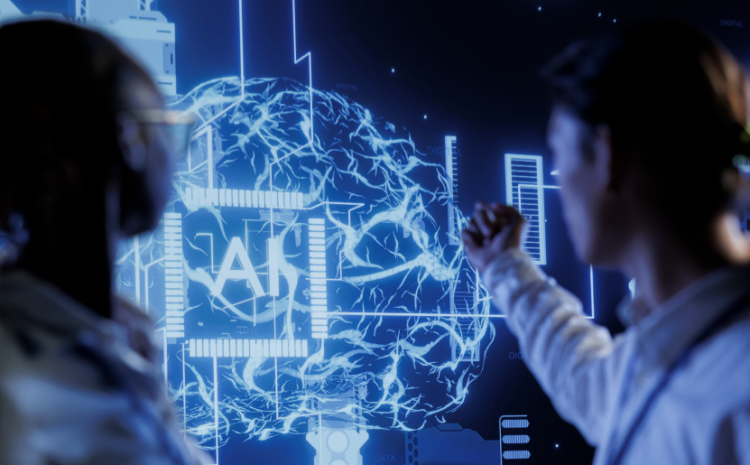Artificial Intelligence in the field of health: a revolution in progress

Artificial Intelligence in the Field of Health: A Revolution in Progress
Artificial intelligence (AI) is significantly transforming healthcare, bringing unprecedented innovations that promise to improve patient care, optimize hospital operations, and advance medical research. This article explores the various applications of AI in the healthcare sector, its benefits, challenges, and future potential.
Applications of AI in the field of health
Accurate and Rapid Medical Diagnosis:
AI excels at analyzing large amounts of medical data. Machine learning algorithms can detect abnormalities in medical images (like X-rays, MRIs, and CT scans) with often greater accuracy than human radiologists. For example, AI is used to identify early signs of diseases like cancer, enabling earlier and potentially more effective interventions.
Personalized Care:
AI systems can analyze patient medical records to recommend personalized treatment plans. By taking into account medical history, genetic characteristics and lifestyle, AI can help determine which treatment is most likely to be successful for a specific patient.
Hospital Management and Workflow Optimization:
AI helps manage hospital resources, optimizing bed allocation, predicting patient admissions, and improving care logistics. This helps reduce waiting times and improve the overall efficiency of healthcare facilities.
Medical Research and Drug Discovery:
AI algorithms are used to analyze large biological and chemical databases, thereby accelerating the process of new drug discovery. AI can also model disease progression and predict patient response to new treatments, which can accelerate clinical trials.
Benefits of AI in Healthcare
Precision and Reliability:
AI systems can process complex, multi-dimensional data with unparalleled speed and accuracy, reducing the risk of human errors.
Accessibility and Reduced Cost:
Automating certain diagnostic and administrative tasks can reduce healthcare costs, making care more accessible. AI technologies can also be deployed in remote or underserved regions, where access to medical experts is limited.
Improved Search:
By facilitating the analysis of big data, AI accelerates medical research, enabling faster discoveries and continuous innovations.
Challenges and Limitations
Privacy and Data Security Issues:
Managing and protecting sensitive medical data remains a major challenge. AI systems must be designed to ensure the confidentiality of patient information and protect against cyberattacks.
Bias and Ethics:
AI algorithms can reflect biases present in the data they are trained on. It is crucial to develop fair and transparent systems to avoid discrimination in health care.
Acceptance and Training:
The adoption of AI requires adequate training and acceptance by healthcare professionals. It is essential to ensure that practitioners are knowledgeable and comfortable with these new technologies.
Perspectives Futures
The future of AI in healthcare is bright. With continued advances in technology and increased integration into medical practices, AI could even more radically transform the way care is delivered. The fields of genomics, precision medicine, and telemedicine are particularly likely to benefit from AI innovations. Additionally, the development of explainable AI (XAI) could enable practitioners to understand and trust the decisions made by AI systems, thereby driving wider adoption.
In conclusion, artificial intelligence represents an ongoing revolution in healthcare, bringing tangible and potential improvements that could redefine medical care. However, addressing ethical, privacy and acceptance challenges is crucial to ensure that these technologies benefit everyone equitably and securely.

